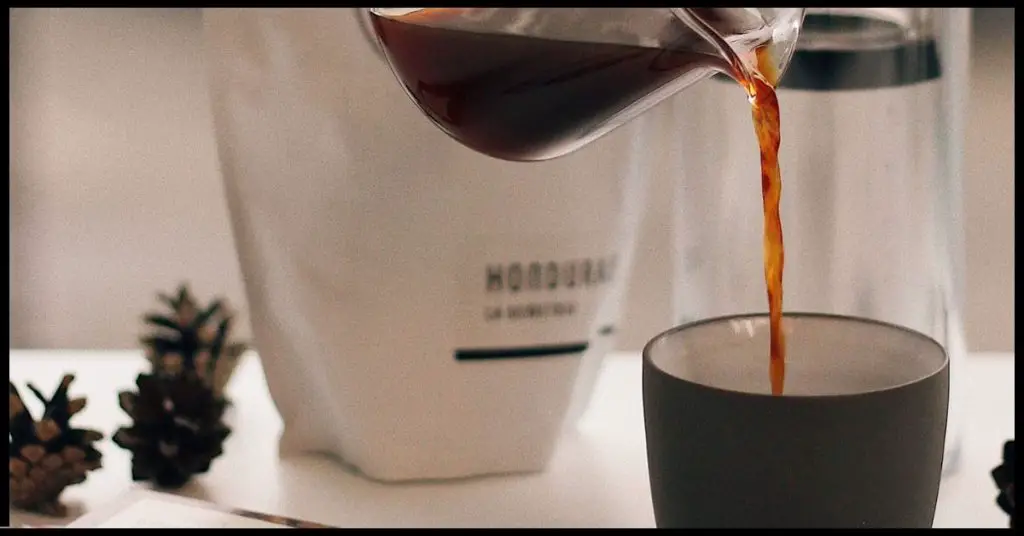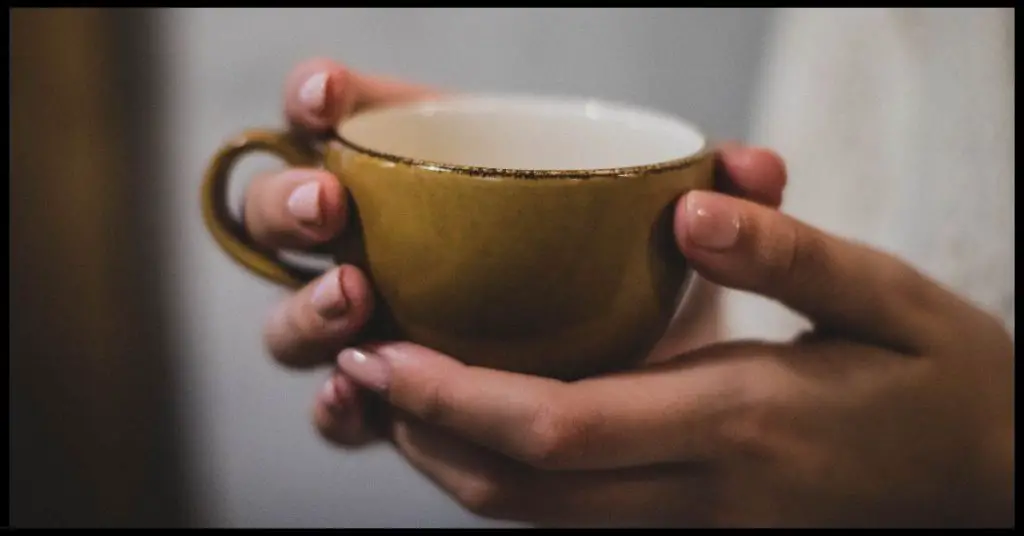Herbal Tea Benefits

Herbal tea has many benefits that have been enjoyed for centuries. Herbal teas are made from various plants, including chamomile, lavender, mint, and rosemary.
These teas can be enjoyed hot or cold and have many health benefits. Herbal teas are known to be soothing and relaxing. They can help to reduce stress and anxiety and promote a sense of calm.
Chamomile tea is especially popular for its ability to promote sleep. Herbal teas can also be helpful in managing digestive issues like nausea, bloating, and gas.
In addition to their calming effects, herbal teas are packed with antioxidants and other nutrients supporting overall health.
Drinking herbal tea regularly can help boost the immune system, improve heart health, and reduce inflammation throughout the body.
Table of contents
Herbal Tea: A Cure-All for What Ails You?

Many people have turned to herbal tea as an alternative treatment method when traditional medicine has failed them or proved ineffective.
Many studies have shown that herbal teas positively affect the body, including regulating blood sugar and fighting cancer cells.
Herbal tea may also help relieve stress, clear skin problems, and boost immunity.
Herbal teas have been around for centuries and are used as a natural remedy for various ailments. Today, many different types of herbal teas are available, each with its unique benefits.
Here are just a few of the ways herbal tea can help you feel your best:
- Herbal tea can help boost your immune system and fight off infection. The antioxidants in herbal tea can also help to protect your cells from damage and reduce inflammation.
- Herbal tea can also aid in digestion and help to relieve stomach discomfort. If you’re feeling bloated or constipated, try sipping on some peppermint or ginger tea.
- Finally, herbal tea is a great way to relax and de-stress. If you’re feeling anxious or having trouble sleeping, chamomile or lavender tea can be calming and soothing.
Herbal Teas For Physical Ailments

Herbal teas offer a natural way to treat physical ailments and improve overall health. There are many herbal teas available, each with its own unique benefits.
In the simplest sense, herbal teas can treat various physical ailments using various herbs and spices.
For instance, ginger tea has been shown to reduce nausea in pregnant women, while peppermint tea is often used to treat indigestion.
Meanwhile, chamomile tea is known to have calming properties that are useful for people who suffer from anxiety or insomnia.
Here are six of the most popular herbal teas and their benefits:
- Chamomile tea is often used as a sleep aid or to relieve anxiety. Chamomile contains compounds that have sedative and muscle-relaxant effects.
- Ginger tea is commonly used to treat nausea and vomiting but can also help with digestive issues like bloating and indigestion. Ginger works by stimulating the digestive system and increasing stomach acids.
- Peppermint tea is traditionally used to treat digestive issues like indigestion, gas, and diarrhea. Peppermint tea can also help relieve nausea and headaches.
- Passionflower Tea has been used traditionally to relieve anxiety and improve sleep. Some studies have shown that passionflower tea can reduce anxiety and improve sleep quality. Passionflower tea is generally considered safe, but it can cause some side effects, such as drowsiness and dizziness.
- Black tea. According to an article by Julia Edgar (Types of Teas and Their Health Benefits) in WebMD, studies have shown that black tea may protect the lungs from damage caused by exposure to cigarette smoke. The antioxidants in black tea can help to neutralize the harmful effects of cigarette smoke and thus reduce the risk of lung damage.
- Echinacea tea is often touted to fight the common cold, but the research on echinacea has been inconclusive. Some studies have shown that echinacea can shorten the duration of the common cold, while other studies have shown no benefit. It is unclear why echinacea may be ineffective in treating the common cold.
Herbal Teas For Mental Ailments

Drinking herbal tea also provides mental benefits as well.
Herbal teas have been used for centuries to treat various mental ailments. The most common herbs used in these teas are chamomile, lavender, and lemon balm.
These herbs have been shown to effectively reduce anxiety, improve sleep quality, and reduce stress levels. Herbal teas are a safe and effective way to treat mental health conditions without the use of medication.
Some research suggests that drinking green or black tea on a regular basis could lower your risk of depression. According to an article published on Healthline, here are the 5 Best Teas for Depression:
- Best for reducing anxiety: Chamomile tea
- Best for sleep problems: St. John’s wort tea
- Best for improving mood: Lemon balm tea
- Best for multiple health benefits: Green tea
- Best for a calming effect: Ashwagandha tea
Herbal teas work by helping to balance the body’s natural chemistry and provide calming and relaxing properties that can help ease the symptoms of mental illness.
Herbal Teas As An Antioxidant

Herbal teas are great sources of antioxidants. Antioxidants can potentially protect cells in the body from damage caused by free radicals.
Free radicals are unstable molecules that can damage cells and lead to various health problems. Herbal teas contain various antioxidants, including flavonoids, polyphenols, and vitamins C and E.
These compounds work together to scavenge free radicals and prevent them from causing cell damage.
Herbal teas have been shown to be effective in treating a wide variety of mental and physical ailments. In addition, herbal teas are a delicious and refreshing way to get your daily dose of antioxidants.
So go ahead and brew yourself up a cup of chamomile tea. It’s not only good for you but also tastes great!
How To Brew The Perfect Cup Of Herbal Tea
- To brew a perfect cup of herbal tea, use one teaspoon of the herb per eight ounces of boiled water.
- Pour hot water over the herbs and steep for three to five minutes. Be careful not to over-steep, or your tea will become bitter.
- After steeping is complete, strain out the herbs and enjoy your drink while it’s still warm.
Key Takeaway: Herbal teas can be drunk as often as desired, but do not exceed four cups per day due to caffeine content. Herbal teas can be sweetened with honey or sugar if desired.
Final Thoughts on Herbal Tea Benefits
In conclusion, herbal tea has many benefits that can improve our health.
It is important to remember that different herbs can affect our bodies differently, so it is important to consult with a healthcare professional before consuming herbal tea.
However, when consumed in moderation, herbal tea can be a delicious and healthy way to improve our overall health.
References
- Khan, N., & Mukhtar, H. (2013). Tea and health: Studies in humans. Current pharmaceutical design. Retrieved November 10, 2022, from https://www.ncbi.nlm.nih.gov/pmc/articles/PMC4055352/
- Pennmedicine.org. (n.d.). Retrieved November 10, 2022, from https://www.pennmedicine.org/updates/blogs/health-and-wellness/2019/december/health-benefits-of-tea
- The health benefits of 3 herbal teas. Harvard Health. (2021, October 21). Retrieved November 10, 2022, from https://www.health.harvard.edu/nutrition/the-health-benefits-of-3-herbal-teas
- Jones, T. (2017, October 20). 10 healthy herbal teas you should try. Healthline. Retrieved November 10, 2022, from https://www.healthline.com/nutrition/10-herbal-teas
- WebMD. (n.d.). Types of teas and their health benefits. WebMD. Retrieved November 10, 2022, from https://www.webmd.com/diet/features/tea-types-and-their-health-benefits
- Frothingham, S. (2021, July 15). These 5 teas may help you cope with depression. Healthline. Retrieved November 10, 2022, from https://www.healthline.com/health/tea-for-depression#A-quick-look-at-the-best-teas-for-depression
- SciTechDaily.com. (2022, June 29). The lesser-known health benefits of herbal teas – what you need to know. SciTechDaily. Retrieved November 10, 2022, from https://scitechdaily.com/the-lesser-known-health-benefits-of-herbal-teas-what-you-need-to-know/antioxidants.
- Kumari, Amita, and Dharmesh Kumar. “Evaluation of Antioxidant and Cytotoxic Activity of Herbal Teas From Western Himalayan Region: A Comparison With Green Tea (Camellia Sinensis) and Black Tea – Chemical and Biological Technologies in Agriculture.” SpringerOpen, 12 May 2022, chembioagro.springeropen.com/articles/10.1186/s40538-022-00294-3.


Leave a Reply